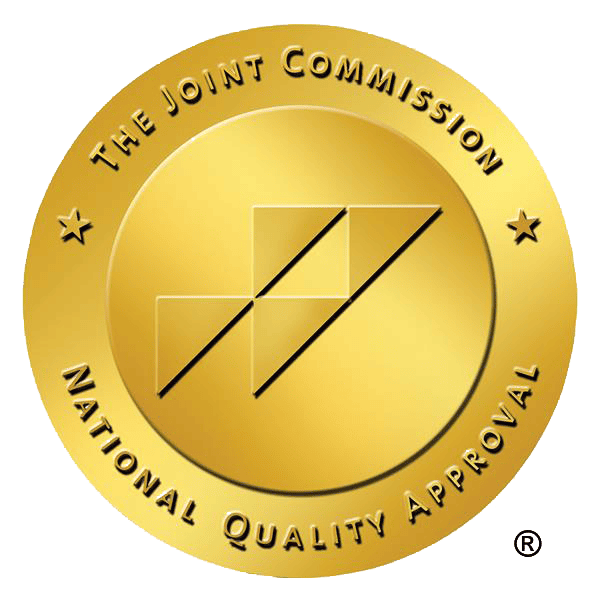What does psychodynamically-oriented care mean, and what does it entail, especially when it comes to treating substance use?
At The Prairie Recovery Center, and in the Ethos Behavioral Health Group family as a whole, we believe that taking a psychodynamic approach to treatment helps achieve sustained, long-term healing and recovery. This is often seen as a more global, in-depth approach to care, treating the underlying cause of symptoms rather than merely addressing the symptoms themselves. However, it is also sometimes viewed as a longer, more expensive form of therapy. Read on for more on the ins, outs and misconceptions of psychodynamic care.
When we remodel our home, it may seem easier to put a coat of paint on the walls, replace the carpet and call it done; things look shiny and new—for a while. However, in many cases the paint will begin cracking, the floors may start shifting; that shiny new home can start to fall apart when structural and foundational issues aren’t addressed.
Similarly, our psychological symptoms may appear to be “fixed” by determining the dysfunctional thoughts behind our problematic behaviors, then correcting those behaviors through learned skills and alternative thoughts. However, it is sometimes the case that without addressing the root cause of these patterns, we may find ourselves returning to them down the road. For individuals dealing with a substance use disorder, this often looks like relapse.
"...many have found—and research has shown—that [psychodynamic care] saves time and heartache down the road through higher levels of sustained, long-term success."
The Pillars of Psychodynamic Care
A psychodynamic approach works to understand one’s core experiences, thoughts and beliefs—past and present—their worldview, and where it all stems from, then aims to create healing experiences in the here and now, helping one learn from their past and transforming negative experiences or trauma into valuable insights. This means focusing on a few important areas:
- The therapeutic relationship. If your therapist is asking you to do this inner work, a trusting relationship and close connection helps assure you that they have your best interest at heart, as well as the expertise to help guide you towards healing.
- A safe, caring environment. A secure, non-judgemental space allows clients to be comfortable sharing their feelings, thoughts and beliefs. Mutual respect and understanding, as well as empathy, expressions of care and validation of one’s lived experience, are all important aspects in healing.
- Exploration of the past. What messages, expectations and behaviors have been created throughout a client’s life? How have past experiences influenced work, relationships and more, even one’s entire world view? (Often, we recreate what is familiar to us.)
- Integrating this insight into daily life. With this understanding of how our past experiences have affected us, we can begin to create new experiences in the here and now during treatment, working to improve negative thought patterns, maladaptive behaviors, problematic views and beliefs of ourselves and the world around us, all of which may be holding us back from becoming our best selves.
A Real-Life Example
One specific example where psychodynamically-oriented care can be beneficial is a man who grew up with a very harsh and critical parent, creating internalized shame and the outlook that nothing he does is ever good enough. While this may have fueled his need for achievement and led him to great success in school and work, his interpersonal life may be suffering greatly in the meantime, having sought out partners who are verbally abusive or unsupportive simply because it is familiar and known, reflecting his learned view of the world and himself.
In some models of care, treatment may involve working to combat this cognitive distortion through positive affirmations, but the depth work is missing. What facilitated this distortion in the first place? He has internalized this belief through the past experience of being treated as less-than by his parent.
In psychodynamically-oriented treatment, we would aim to understand how this experience shaped his thoughts, beliefs and actions, then begin to repair those things by creating experiences to support the perception that he is a good, kind person who needed to be loved, working to understand his relationships and how those can be improved, and finally, working to connect the dots and move past other major maladaptive, cyclical patterns in his life, namely addiction. None of this would be possible without a foundation of safety, trust and care.
"The alchemy of the psychodynamic process is taking these wounds and turning them into the gifts of insight, understanding and a healthy new perspective."
Debunking Misconceptions
If one begins this process of psychodynamically-oriented care in our residential program, the time involved may look like…
- Over 40 hours of individual, group and family therapeutic intervention each week during residential care here at The Prairie Recovery Center.
- Stepping down to a structured outpatient program like Partial Hospital Programming (Day Treatment) or an Intensive Outpatient Program, with 15-20 hours of therapy each week.
- Continuing with weekly outpatient therapy as long as possible to ensure sustained, long-term wellness and recovery.
However, psychodynamic care can also begin at the intensive outpatient level, or even during weekly outpatient treatment, though it may take longer to accomplish at this frequency. It’s important to note that while this approach may be more time-consuming, many have found—and research has shown—that it saves time and heartache down the road through higher levels of sustained, long-term success.
For those who may be more concerned with expense, we believe that this type and quality of care should be accessible to all who may need it. Through the Ethos Training Institute, our master’s-level interns provide psychodynamically-oriented outpatient therapy at a sliding scale cost based on income. If you or someone you love could benefit from this low-cost option, consider reaching out to our client care team by tapping here.
Above all, our goal for each person who enters our care is to begin healing wounds from the past through understanding, creating a healthy internal dialogue and better communication with others, and breaking the cycle of maladaptive patterns and behaviors. The alchemy of the psychodynamic process is taking these wounds and turning them into the gifts of insight, understanding and a healthy new perspective.
Contact our care team confidentially to find out how The Prairie Recovery Center can help you or a loved one find freedom from substance use, or learn more about our approach to care.









